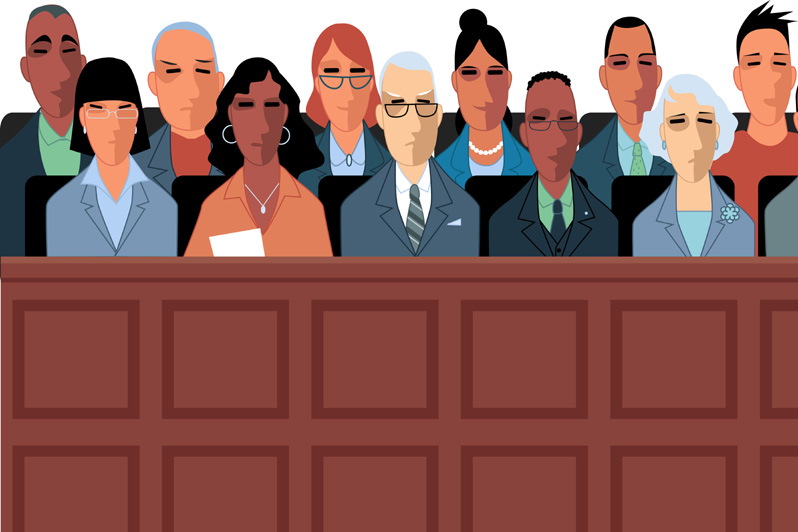

To determine if a prosecutor has enough evidence to bring a criminal case to trial, two methods are commonly used. In some states, preliminary hearings are held, and a judge decides based on the evidence presented at the hearing. In other states, including Louisiana, a grand jury is created and tasked with listening to the evidence and deciding whether or not to bring an indictment against a suspect. Understanding a grand jury indictment and how it can affect your case is an important part of understanding your legal strategy.
If you have been indicted by a grand jury and do not yet have an experienced criminal defense attorney handling your case, it is important to speak with one. Your lawyer can help you understand the indictment, develop a legal strategy for defending yourself against the charge, and protect your rights throughout the criminal trial process.
How a Grand Jury Works
In Louisiana, grand juries are impaneled twice a year in most parishes. Like trial jurors, grand jurors are ordinary citizens who are randomly selected. Grand juries typically only report to the court for a few days a month and they convene in secret to protect witnesses in criminal cases from retaliation as well as to protect the reputation of the defendant if the grand jury decides not to indict.
Grand juries consider the evidence presented by the prosecutor without a judge or criminal defense attorney being present. The prosecutor is prohibited from presenting evidence that violates the defendant’s constitutional rights or that is deliberately misleading to the grand jury. Grand juries have the power to subpoena witnesses and to request to see certain types of evidence as they consider a case.
An indictment is a formal accusation that states, in essence, that the grand jury found that enough evidence exists to charge a defendant with a crime. This indictment is then provided to the prosecuting attorney, who decides whether or not to file charges. While a prosecutor can choose to proceed without an indictment, having an indictment typically allows the case to move to trial more quickly without the need for a preliminary hearing.
What Happens When a Grand Jury Decides to Bring an Indictment?
After a grand jury has heard the evidence presented by the prosecutor and has had the opportunity to deliberate, they will vote on whether or not to indict the crimes they think there is sufficient evidence to charge the defendant with. The burden of proof is not as high for a grand jury proceeding as it is for a trial. Grand jury votes are not required to be unanimous – only a simple majority is required to bring an indictment.
Usually after a grand jury indictment, the prosecutor will charge the defendant. The defendant may be arrested or permitted to voluntarily surrender to law enforcement. The next step is an arraignment, which is a formal court hearing where the defendant is advised of the charges against them and can enter a plea of guilty, not guilty, or no contest. Defendants commonly enter a not-guilty plea at this point, and a date will be set for a pre-trial hearing or trial.
During pre-trial hearings, the attorneys for the prosecution and the defense have the opportunity to request the production of evidence held by the other side. The defendant’s attorney can also make motions to suppress certain types of evidence or even to have the case dismissed for a variety of reasons, such as lack of evidence. If the case has not been resolved through a deal before the trial begins, the prosecution will present the case before a judge or jury that will determine the defendant’s guilt or innocence.
If You Need a Criminal Defense Lawyer, Contact John D. & Eric G. Johnson Law Firm
Being indicted by a grand jury is a serious situation, as an arrest is typically imminent. The legal team at John D. & Eric G. Johnson Law Firm knows how important it is to have an attorney’s experience while going through this stressful situation. We handle a large variety of criminal cases and have the knowledge needed to defend our clients against the most serious of charges.
Don’t put your freedom in jeopardy. Let an experienced criminal defense attorney from our team help you understand your rights and legal options after a grand jury indictment. For a consultation, contact us by calling (318) 377-1555 or sending us a message through our online contact form.
